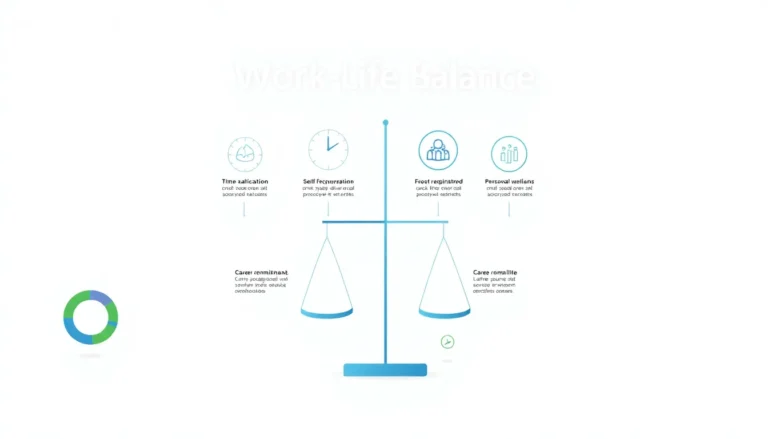Table of Contents
ToggleIn a world where instant gratification reigns supreme, the concept of a mastery mindset might seem like a relic from a bygone era. But hold on—this isn’t just another buzzword thrown around by motivational speakers. A mastery mindset is the secret sauce for anyone looking to level up their skills and tackle challenges like a pro. It’s about embracing the grind and seeing setbacks as stepping stones rather than roadblocks.
Mastery Mindset Definition
A mastery mindset refers to the belief in one’s ability to develop skills and knowledge through persistent effort and learning. This mindset fosters resilience, allowing individuals to embrace challenges and view failures as growth opportunities instead of setbacks. Individuals with a mastery mindset prioritize long-term achievement over immediate satisfaction, focusing on the journey rather than just the end result.
Key characteristics define a mastery mindset. First, continuous improvement drives behavior, motivating individuals to seek feedback and refine their techniques. Second, intrinsic motivation plays a vital role since these individuals thrive on personal growth rather than external validation. Third, the process-oriented approach emphasizes the importance of consistent practice and dedication, which builds competence and confidence over time.
The benefits of adopting a mastery mindset are significant. Research indicates that those who cultivate this mindset tend to perform better academically and professionally. Studies show that individuals with a mastery mindset exhibit higher levels of persistence when faced with challenges. Moreover, this mindset enhances problem-solving skills, as individuals are more likely to explore various strategies and solutions.
Ultimately, a mastery mindset creates a foundation for lifelong learning and personal development. It shifts the focus from a fixed perception of ability to an understanding that skills can evolve through dedication and effort. Embracing this perspective leads to a richer, more fulfilling experience in both personal and professional domains.
Key Characteristics of a Mastery Mindset

A mastery mindset encompasses several essential characteristics that drive personal development and skill enhancement. These characteristics empower individuals to navigate challenges effectively and pursue continuous improvement.
Perseverance
Perseverance plays a vital role in developing a mastery mindset. Individuals who embody this trait demonstrate a strong commitment to their goals, investing time and energy even when faced with obstacles. They understand that setbacks are part of the learning process and see them as opportunities to refine their skills. Embracing challenges becomes a way to grow rather than a reason to give up. Research shows that people with high perseverance often achieve higher levels of success, making this trait a cornerstone of a mastery mindset.
Adaptability
Adaptability complements perseverance in the mastery mindset framework. Those who demonstrate adaptability can adjust their strategies and approaches based on feedback and changing circumstances. Flexibility in learning allows individuals to experiment with different methods, which fosters innovation and creativity. When encountering new information or challenges, adaptable individuals recalibrate their efforts, enhancing their overall effectiveness. Studies indicate that adaptability leads to better problem-solving skills and increased resilience, reinforcing the importance of this characteristic in achieving mastery.
Importance of a Mastery Mindset
A mastery mindset significantly contributes to personal and professional achievements. This perspective focuses on growth through effort and learning.
Personal Growth
Personal growth thrives in an environment where individuals embrace challenges. Cultivating resilience allows people to bounce back from failures, viewing them as stepping stones. Emphasizing intrinsic motivation fuels the desire to enhance skills. Individuals who adopt this mindset often engage in continual self-improvement practices and learn more effectively. Furthermore, personal fulfillment increases when individuals prioritize their development over external validation. They become more adaptable, enabling a stronger response to life’s unpredictability. Overall, a mastery mindset serves as a catalyst for enhanced self-awareness and a deeper understanding of one’s potential.
Professional Development
Professional development benefits greatly from a mastery mindset. Embracing challenges leads to innovative problem-solving in the workplace. Individuals motivated by personal growth demonstrate higher levels of persistence, even when facing work-related obstacles. This persistent effort translates into increased workplace effectiveness and collaboration. Moreover, employees who view skill enhancement as an ongoing process often achieve greater career advancements. They remain open to feedback, allowing them to refine their approach. Organizations that cultivate this mindset experience improved employee engagement and productivity. Through a mastery mindset, professionals create pathways for long-term career success and fulfillment.
Strategies to Cultivate a Mastery Mindset
Cultivating a mastery mindset involves intentional practices that foster growth and resilience. Employing effective strategies can significantly enhance skill development and personal fulfillment.
Setting Goals
Setting specific, measurable, achievable, relevant, and time-bound (SMART) goals guides individuals in their mastery journey. By breaking larger objectives into smaller tasks, progress becomes more manageable and motivating. Developing short-term goals while keeping long-term aspirations in mind encourages focus and direction. Adjusting goals based on performance and feedback fosters continuous improvement. Regularly reviewing achievements reinforces commitment and propels further growth. Goals should inspire and challenge, creating a clear path toward mastery.
Embracing Challenges
Embracing challenges cultivates a resilient mindset and promotes growth. Facing obstacles head-on allows individuals to learn from experiences and adapt strategies. Viewing challenges as opportunities enhances problem-solving skills and builds confidence. Individuals are encouraged to step outside their comfort zones to discover their potential. Seeking feedback provides valuable insights that support personal and skill development. Resilience increases as one navigates through difficult situations, allowing for a deeper understanding of one’s capabilities. Overcoming challenges aids in developing grit and fosters a commitment to lifelong learning.
Embracing a mastery mindset is essential for anyone looking to grow personally and professionally. It encourages individuals to view challenges as stepping stones rather than barriers. By fostering resilience and adaptability, this mindset not only enhances problem-solving skills but also promotes a culture of continuous improvement.
The commitment to lifelong learning and intrinsic motivation drives individuals toward their goals. As they prioritize their development over external validation, they experience greater fulfillment and success. Ultimately, a mastery mindset lays the groundwork for achieving long-term aspirations and thriving in an ever-evolving world.







